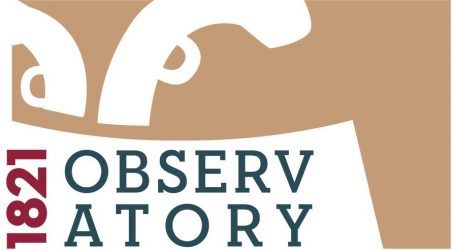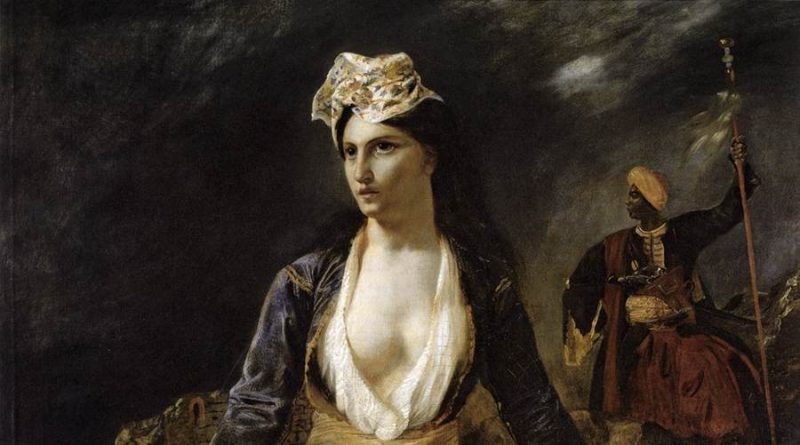Philhellenism and new perspectives (part one): Philhellenism, liberalism and the burden of the Enlightenment
The rich publishing activity of the academic community concerning the 1821 bicentenary included one of the most important and unique phenomena of the Greek Revolution: philhellenism. Its uniqueness lies in the fact that not only was it unprecedented, but it was also never again repeated on another occasion with such intensity. What was philhellenism really though? The historian Gunnar Hering attempted to answer this question throughout his career, as in his book The Struggle of the Greeks for Independence and Philhellenism, which comprises various articles that he wrote in German and which were translated into Greek posthumously.[1] According to Hering, the philhellenic movement, as it appeared in Europe and America, was a mixture of the intensive contact of the aforementioned societies with Greek antiquity, the modern ideas of the Enlightenment and the French Revolution. Moreover, the struggle of Christians against a Muslim, oppressive empire naturally created a wave of sympathy among other Christians. Philhellenic support was expressed in many ways; through literature, poetry, art, but also in the writing of essays, pamphlets and newspaper articles aiming to inform public opinion about the situation in revolutionary Greece. In fact, many of these texts were translated into Greek or republished due to the celebration of the bicentennary of the revolution in order to make them more accessible to the Greek public.[2]
However, as recent research has shown, philhellenism was closely associated with liberalism, and radical liberalism at that. As Anna Karakatsouli shows in Freedom Fighters’ and 1821: A Transnational Approach of the Greek War of Independence, the philhellenes who arrived in revolutionary Greece to practically assist in the struggle belonged to a transnational group of liberals who participated in the various revolutions that had broken out in southern Europe and Latin America as well. “Romantic idealists” and “professional revolutionaries” at the same time, they were mostly acquainted with Greece and Greeks through the classical education that some Western Europeans received at that time, which was largely focused on classical Athens and Rome. However, having an idealised image of the ancient Athenian philosophers, the philhellenes were confronted with the reality of the 19th century; the rebellious Greeks they faced were klephts, armatoles and warlords, whose dress, habits, and even fighting style, were essentially Oriental; a far cry from what they expected to encounter in the cradle of Western civilisation. Thus, while in the bipolar scheme between the civilised West and the barbaric East the Greeks were classified in the former as the descendants of the founders of Western civilisation, in practice the philhellenes found that they rather belonged to the latter.[3]
Stathis Gourgouris also dealt with these darker, or, in any case, more complicated aspects of philhellenic discourse in his book Dream Nation: Enlightenment, Colonization and the Institution of Modern Greece, which was re-republished in 2021 on the 25th anniversary of its original publication. For Gourgouris, philhellenism, as well as the concept of Hellenism, is inextricably linked to the ideas of the Enlightenment, especially to the concept of civilisation. “‘We are all Greeks’ Shelley would declare in his famous Preface to Hellas (1822) – a certainly philhellenic work – encapsuling perhaps the displacement of Hellenes from a historical reality to an ontological condition,” he writes. Therefore, Greeks are transformed from actual people into a fantasy straight out of the rhetoric of the Enlightenment; a fantasy so idealised that it ends up being a “colonization of the ideal”.[4] Thus, the “dream nation”, the Greek state, is called to embody this heavily idealised image which was created under the weight of the expectations of philhellenism.
Konstantina Tortomani, Postdoc researcher in modern and contemporary European history at the Department of History and Ethnology, Democritus University of Thrace
[1] Gunnar Hering, Ο αγώνας των Ελλήνων για την ανεξαρτησία και ο φιλελληνισμός (Iraklio: Crete University Press, 2021).
[2] Some indicative examples include, in alphabetical order: Réné de Chateaubriand, Υπόμνημα περί της Ελλάδας [Memorandum on Greece] (Athens: Historical and Ethnological Society of Greece; National Historical Museum, 2019); Wilhelm Traugott Krug, Η τρέχουσα κατάσταση της ελληνικής υπόθεσης [The current situation of the Greek case] (Athens: Historical and Ethnological Society of Greece; National Historical Museum, 2020); Stamatios T. Laskaris, Ὁ φιλελληνισμὸς ἐν Γερμανίᾳ κατά την ελληνικήν επανάστασιν [Philhellenism in Germany during the Greek Revolution], 2nd rev. ed. (Athens: SOV, 2021); Adolph von Lübtow, Ο απελευθερωτικός αγώνας των Ελλήνων κατά το έτος 1822 [The liberation struggle of the Greeks in 1822] (Athens: Historical and Ethnological Society of Greece; National Historical Museum, 2020); Johann Heinrich Müller, Μικρό σύγγραμμα προς το ποίμνιο του εφημέριου Müller στο Embrach [Small book for Pastor Müller’s flock in Embrach] (Athens: Historical and Ethnological Society of Greece; National Historical Museum, 2022) Percy B. Shelley, Ἑλλάς [Hellas], 2nd rev. ed. (Athens: SOV, 2021); Terence J.B. Spencer, Όμορφη Ελλάδα, Θλιβερό απομεινάρι: Φιλολογικός φιλελληνισμός από τον Σαίξπηρ ώς τον Μπάυρον [Fair Greece, Sad Relic: Literary Philhellenism from Shakespeare to Byron], 2nd rev. ed. (Athens: SOV, 2021).
[3] Anna Karakatsouli, «Μαχητές της Ελευθερίας» και 1821: Η Ελληνική Επανάσταση στη διεθνική της διάσταση (Athens: Pedio, 2016).
[4] Stathis Gourgouris, Dream Nation: Enlightenment, Colonization and the Institution of Modern Greece. Twenty-Fifth Anniversary Edition (Stanford: Stanford University Press, 2021), 6, 127–28, 134–35.

